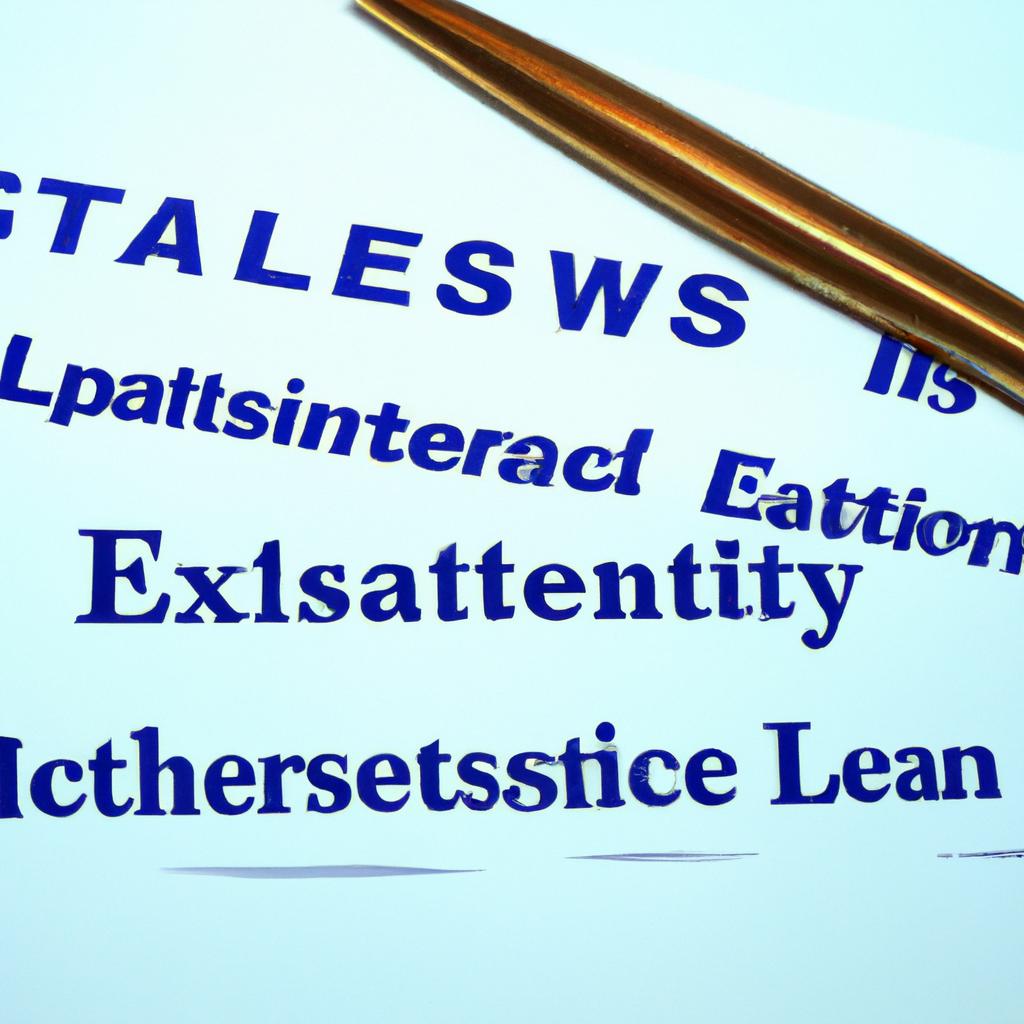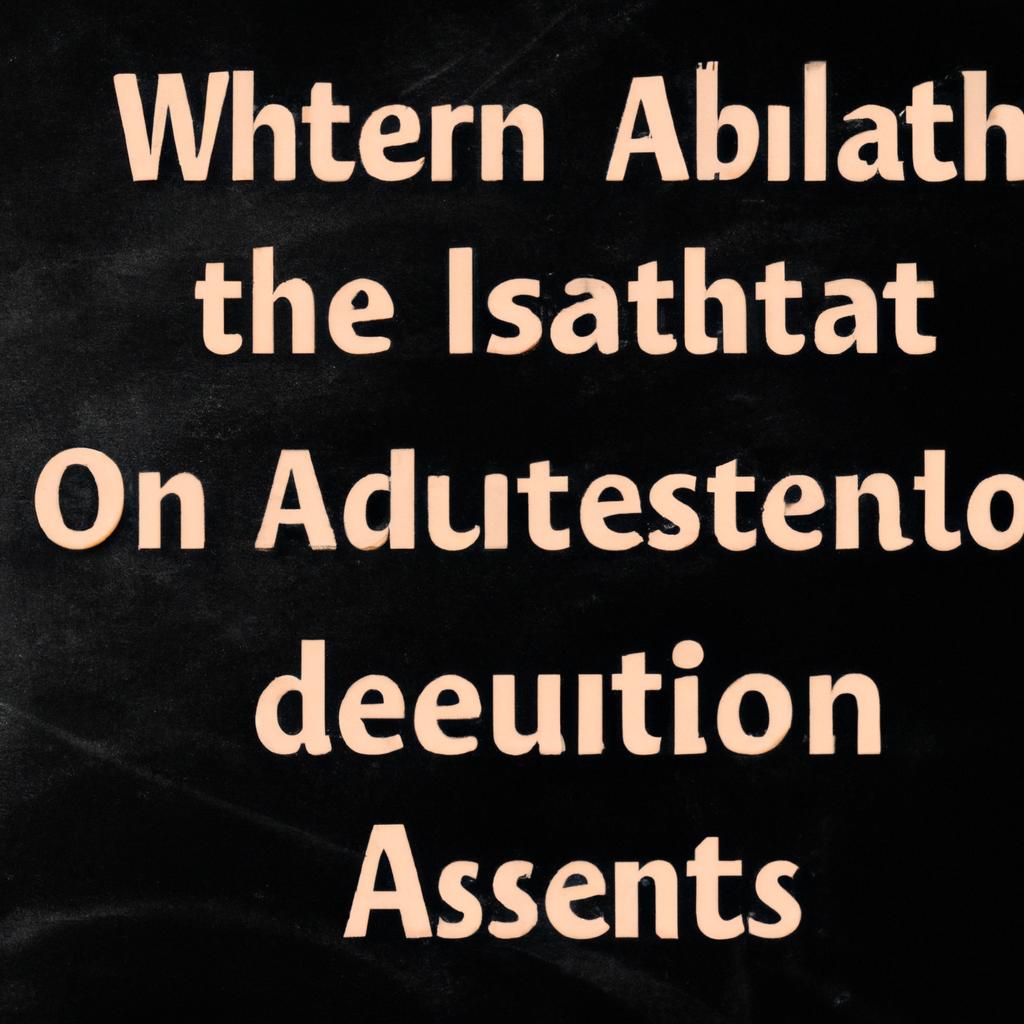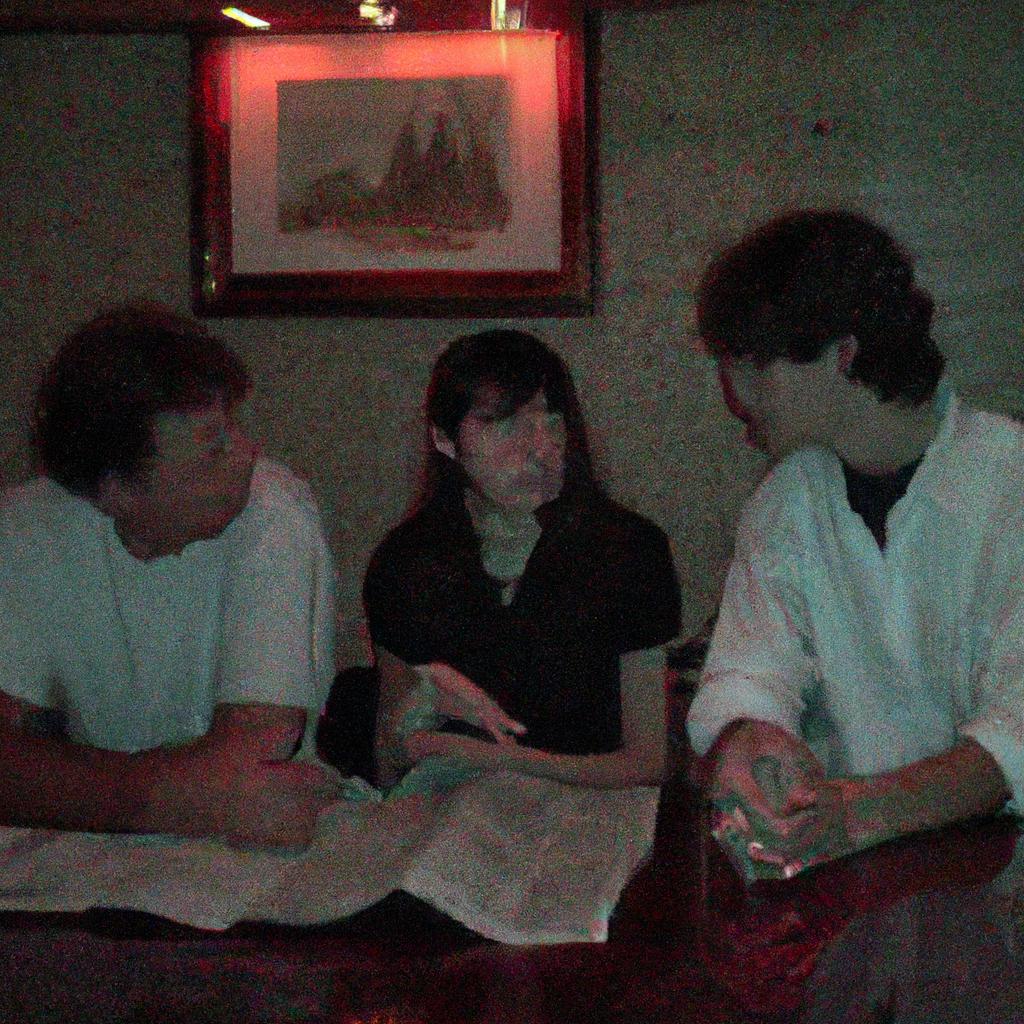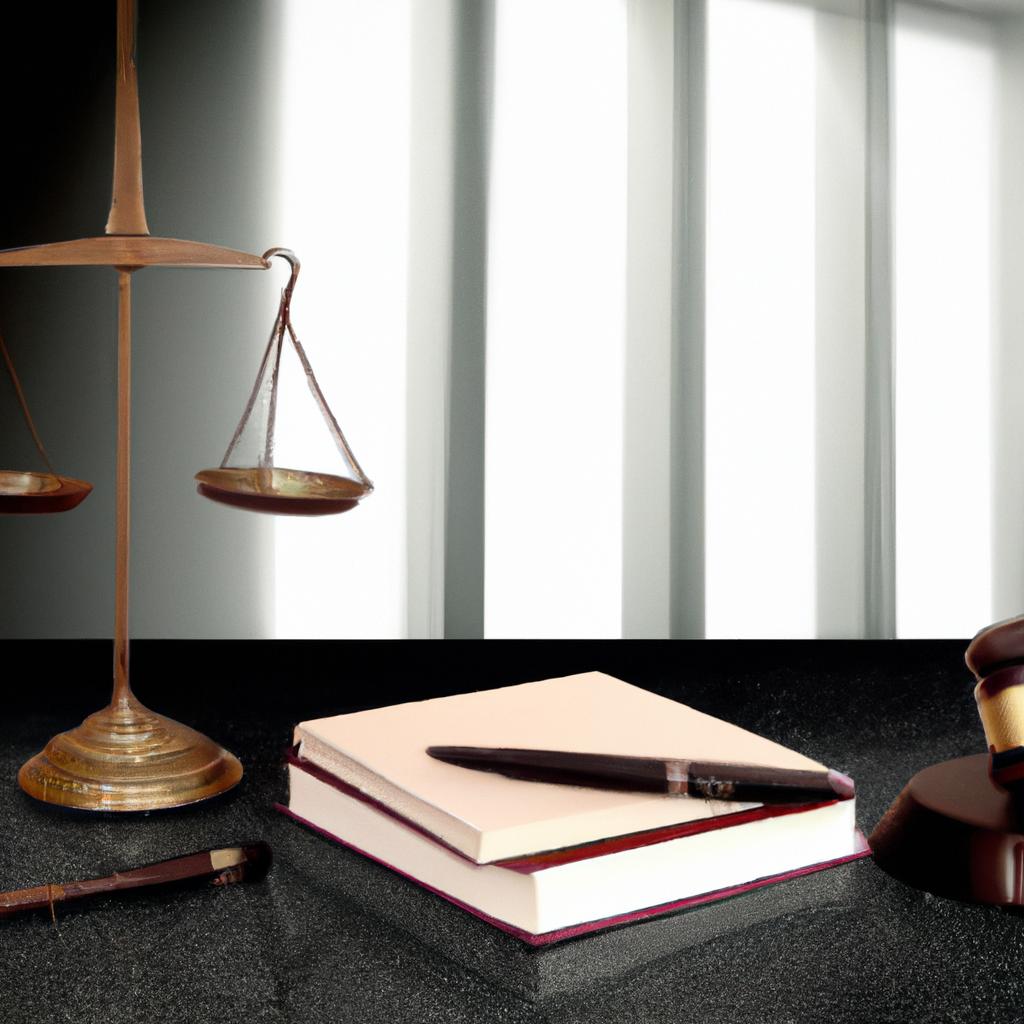In the intricate tapestry of estate planning, the absence of a will can leave a tangled web of uncertainty and confusion. In the state of New York, the laws governing intestate succession dictate who will inherit the assets of a deceased individual when no will is present to guide the way. As experienced practitioners in the field of estate law, the team at Morgan Legal Group navigates the nuances of inheritance without a will, shedding light on the complex process and ensuring that assets pass seamlessly to their rightful heirs. Explore with us the intricacies of intestacy laws in New York and discover who stands to inherit when the guiding hand of a will is absent.
Intestate Succession Laws in New York State
In New York State, when someone passes away without a will, their estate is subject to intestate succession laws. This means that the deceased person’s assets will be distributed according to a specific hierarchy of relatives outlined in the law. The distribution of assets is based on the relationship of the surviving family members to the deceased individual.
Under New York State intestacy laws, the following relatives typically inherit the estate in the absence of a will:
- Spouse
- Children
- Parents
- Siblings

Understanding the Distribution of Assets Without a Will
When an individual passes away without a will in New York, their assets will be distributed according to the laws of intestacy. In this scenario, the state determines who will inherit the deceased person’s estate based on their relationship to the deceased. Understanding how assets are distributed without a will is crucial to ensure that your loved ones are taken care of after your passing.
Under New York intestacy laws, the distribution of assets typically follows a specific order of priority. If the deceased has a surviving spouse but no children, the spouse will inherit the entire estate. If there are children but no spouse, the children will inherit equal shares of the estate. In cases where there is both a spouse and children, the spouse will inherit the first $50,000 plus 50% of the remaining estate, with the children inheriting the rest. It is important to consult with a qualified estate planning attorney to understand the implications of intestacy laws and ensure that your assets are distributed according to your wishes.

Navigating the Complexities of Inheritance in New York
When a loved one passes away without a will in New York, the distribution of their estate can become a complex and confusing process. In such cases, the state’s laws of intestate succession will dictate how their assets are distributed among their heirs. Typically, the decedent’s closest relatives will inherit their estate, following a specific order of priority.
The first to inherit will usually be the surviving spouse, followed by any children of the deceased. If there is no spouse or children, the estate may pass to parents, siblings, nieces, nephews, or other more distant relatives. It is essential to consult with a knowledgeable probate attorney to ensure that the estate is distributed correctly according to New York’s laws and regulations.

Recommendations for Ensuring an Orderly Estate Distribution Without a Will
In New York, if a person passes away without a will, their estate will be distributed according to the laws of intestacy. This means that the state determines who inherits the deceased person’s assets. To ensure an orderly estate distribution without a will, it is essential to consider the following recommendations:
- Consult with an attorney: Seeking legal advice from an experienced estate planning attorney can help navigate the complexities of intestacy laws and ensure that your assets are distributed according to your wishes.
- Create a comprehensive estate plan: In the absence of a will, having other estate planning documents such as a trust, power of attorney, and healthcare directive can provide guidance on how your assets should be distributed and managed.
Q&A
Q: What happens if someone dies without a will in New York?
A: When a person dies without a will in New York, their estate is distributed according to state laws of intestacy.
Q: Who inherits in New York if there is no will?
A: In New York, if there is no will, the state’s intestacy laws dictate that the deceased person’s assets are typically passed on to their closest living relatives.
Q: What is the order of inheritance in New York if there is no will?
A: In New York, if there is no will, the order of inheritance typically starts with the surviving spouse, followed by children, parents, siblings, and other relatives in a specific hierarchy.
Q: Can anyone inherit if there is no will in New York?
A: Yes, according to New York intestacy laws, only close relatives are eligible to inherit if there is no will. Distant relatives, friends, or unmarried partners may not inherit.
Q: How can someone ensure their assets are distributed according to their wishes in New York?
A: To ensure their assets are distributed according to their wishes, individuals in New York should create a will stating their desired beneficiaries and instructions for asset distribution. It is also recommended to seek legal advice to properly execute a will.
In Retrospect
As you can see, the laws governing intestate succession in New York are complex and can have significant implications for who inherits your assets if you pass away without a will. It is always recommended to consult with an experienced estate planning attorney to ensure that your wishes are carried out and your loved ones are taken care of according to your preferences. Remember, preparing a will is an important way to protect your assets and provide for your loved ones after you’re gone. Stay informed, stay prepared, and secure the future for those you care about. Thank you for reading!
 Who Inherits if There is No Will in New York?
Who Inherits if There is No Will in New York?
The passing of a loved one is a difficult and emotional time, and it can become even more complex and stressful when there is no will in place. In the state of New York, where estate planning and probate laws are specific and detailed, it is important to understand who will inherit if someone dies without a will. In this comprehensive article, we will delve into the intricacies of intestate succession in New York and provide valuable information for those who may find themselves in this situation.
Understanding Intestate Succession in New York
Intestate succession is the process in which a person’s assets are distributed to their heirs when they die without a valid will. In New York, the state’s intestate succession laws dictate how these assets will be distributed. These laws are designed to distribute the assets in a way that is fair and reflective of the deceased’s wishes.
The Role of the Surrogate’s Court
In New York, the Surrogate’s Court is responsible for overseeing the distribution of assets in the absence of a will. It is required by law to follow the guidelines set forth in the state’s intestate succession laws. The process involves appointing an administrator to handle the estate and ensure that all debts and taxes are paid before distributing the assets to the heirs.
Who Inherits if There is No Will in New York?
In New York, the distribution of assets is based on a hierarchy, with the closest relatives having the first priority. The deceased’s surviving spouse has the first right to inherit, followed by their children. If there is no surviving spouse or children, the assets are passed on to other close relatives, such as parents, siblings, or nieces and nephews.
Spouse Inheritance in New York
In the state of New York, if the deceased is survived by a spouse, but has no children, the spouse is entitled to the entire estate. This includes all of the assets and property that the deceased owned at the time of their death. However, if the deceased is survived by a spouse and children, the spouse is entitled to a portion of the estate, while the remaining assets are divided among the children.
Children Inheritance in New York
In cases where there is no surviving spouse, the children inherit all of the assets equally. This is true regardless of whether the children are biological, adopted, or from a previous marriage. If any of the children have passed away, their share of the assets is divided equally among their own children, or heirs.
Parents, Siblings, and More Distant Relatives Inheritance in New York
If the deceased is not survived by a spouse or children, the assets are then distributed to the parents or siblings in equal shares. If the parents are deceased, the assets are passed on to the siblings, nieces and nephews, or more distant relatives. If there are no surviving relatives, then the assets go to the state of New York.
Adopted and Half-Siblings Inheritance in New York
In New York, adopted children are treated the same as biological children when it comes to inheritance rights. This means that they have the same rights to share in the deceased’s assets as biological children do. However, half-siblings only have inheritance rights if they share one parent with the deceased. If not, they are not entitled to any share of the assets.
Other Considerations in Intestate Succession
It is important to note that only assets that would have been passed down under a will are subject to intestate succession. This means that any assets that are jointly owned, have a designated beneficiary, or are in a trust are not included in the intestate succession process.
It is also worth mentioning that the state of New York does not recognize common law marriage, meaning that partners who were not legally married do not have any inheritance rights. Additionally, if a person has been disowned by the deceased, they are not entitled to any share of the assets.
Practical Tips for Dealing with a Situation Without a Will
Losing a loved one without a will can be overwhelming, but there are some practical steps that can make the process smoother. These include:
1. Seeking legal counsel: It is important to consult an experienced probate attorney who can guide you through the complexities of intestate succession in New York.
2. Gathering all relevant documents: Make sure to gather all the deceased’s important documents such as bank statements, insurance policies, and any other documents related to their assets.
3. Contacting the Surrogate’s Court: Once you have sought legal counsel and have the relevant documents, the next step is to contact the Surrogate’s Court to start the probate process.
Benefits of Having a Will
While it is not mandatory to have a will in New York, having one can provide numerous benefits, including peace of mind and control over the distribution of assets. It also helps to prevent any potential disagreements among family members and eliminates the need for the state to distribute the assets according to intestate succession laws.
In Conclusion
Losing a loved one is never easy, and dealing with the distribution of their assets can be an added stress. In New York, the state’s intestate succession laws dictate how the assets will be distributed if there is no will in place. It is always recommended to have a will to avoid any complications and ensure your assets are distributed according to your wishes. However, if a will was not created, understanding the state’s intestate succession laws can provide clarity and guidance during this difficult time. Seeking legal counsel and following the guidelines set forth by the Surrogate’s Court can help ease the process and ensure the assets are distributed fairly.

